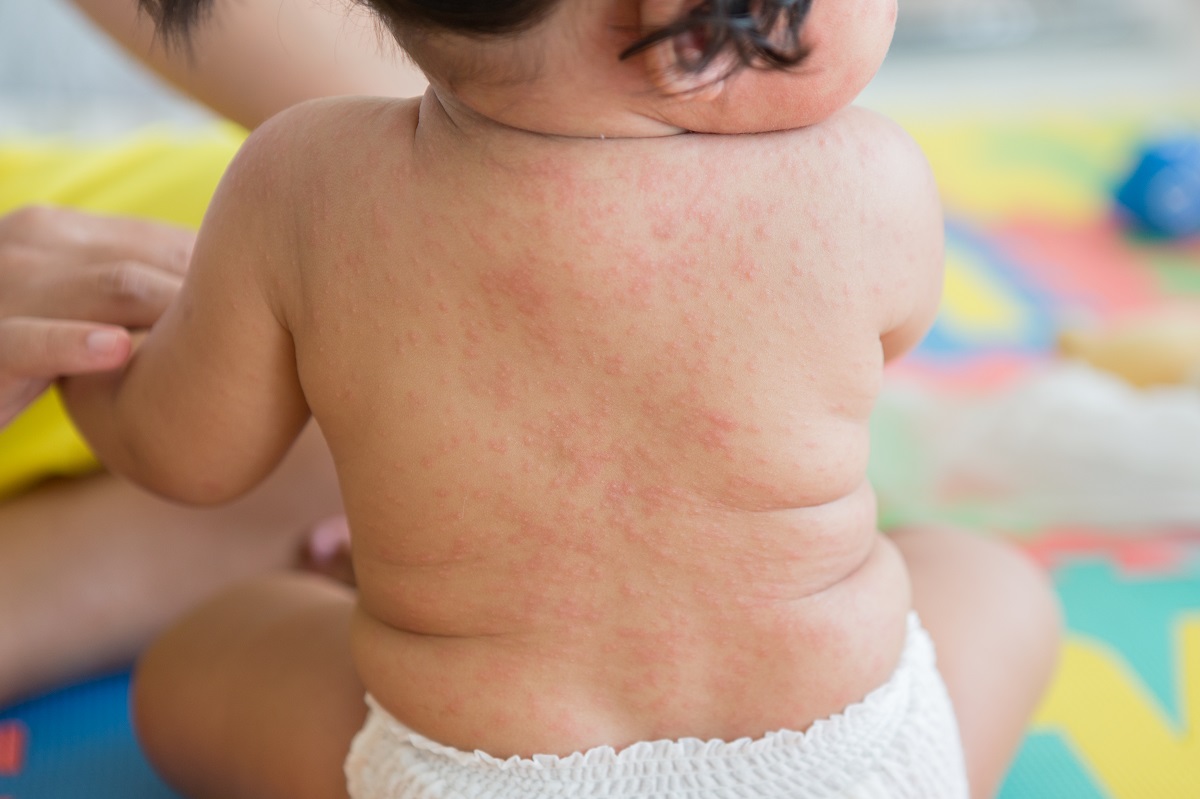
Key facts
- Roseola infantum (‘roseola’) is a contagious, common viral infection that can cause a high fever followed by a rash.
- Roseola spreads by coughing, sneezing and direct contact.
- There is no specific treatment for roseola. If your child has roseola, they will need to rest and drink fluids (water, breastmilk or formula) to stay hydrated.
- Your doctor may recommend paracetamol or ibuprofen to help with the fever.
- There is no vaccine for roseola.
What is roseola?
Roseola infantum (or ‘roseola’) is a contagious, common viral infection that can cause a high fever followed by a rash. It spreads through droplets that are coughed or sneezed into the air by and infected person.
It usually occurs in babies and children between 6 months and 2 years of age. It lasts about 3 to 5 days and can make your child feel feverish and unwell.
What are the symptoms of roseola?
If your child has roseola, you may notice a pattern of symptoms:
- A mild sore throat, runny nose or cough, that usually occur before the fever starts.
- A sudden high fever (a temperature of more than 40oC), which can last up to 3 to 4 days before quickly disappearing.
- A rash of pink, raised spots on their chest, tummy and back, which might spread to the arms and legs. The spots turn white (known as a ‘blanching rash’) when you press them.
- Swollen glands, most commonly in their neck.
The rash usually appears after your child’s temperature goes back to normal and lasts for 2 days.
Your child could have roseola and not have any symptoms at all, or may have a high temperature but no rash.
When should my child see my doctor?
Sometimes children have febrile convulsions during a fever. Febrile convulsions are seizures caused by a high fever, and can be scary but generally do not harm your child. If your child has a febrile convulsion, you should see your doctor to find out the cause of the fever and the seizure.
A roseola rash can sometimes be confused with other conditions. See your doctor immediately if your child seems confused, extremely drowsy, has a severe headache or a headache with a stiff neck, or the rash looks purple in places.
You should also see a doctor if your child:
- has repeated convulsions
- is very sleepy or won’t drink
- is not passing much urine
What causes roseola?
Roseola is caused by a virus and is contagious. It spreads by direct contact with droplets from an infected person, such as through coughing and sneezing.
Children with roseola are only contagious before their symptoms appear. Once symptoms appear, they can no longer spread the virus. Roseola is also not included on the school exclusion lists for the various states. Your child can go back to school or daycare when they are feeling well enough.
How is roseola treated?
There’s no treatment for roseola, but if your child has a high fever or a rash, it’s best to see a doctor.
Your doctor will recommend your child gets rest, and may suggest paracetamol or ibuprofen to help with the fever, as well as fluids (water, breastmilk or formula) to keep them hydrated.
Can roseola be prevented?
There’s no vaccine for roseola.
Good hygiene, including washing your hands often, can reduce the spread of the virus. Read more about hygiene and hand washin

